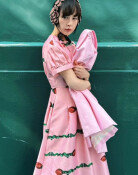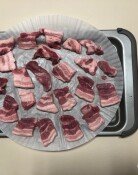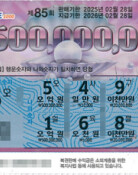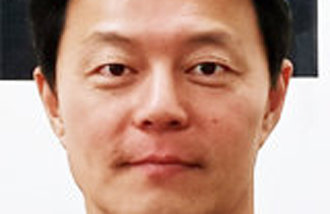Chun familys full payment of fines helps establish social justice
Chun familys full payment of fines helps establish social justice
Posted September. 11, 2013 06:48,
Chun Jae-kook, the eldest son of former President Chun Doo-hwan, held a press conference in front of the entrance to the Seoul Central District Public Prosecutors Office on Tuesday. It is the first time that a suspect, who is undergoing intensive prosecutorial investigation, held a press conference in front of prosecutors office building. It apparently indicates that prosecutors consulted with the Chun family about the announcement and accepted the message. Through the junior Chuns announcement, the prosecution also might have wished to publicize that it did its best in its capacity under law enacted by the National Assembly. Public anger had mounted with the statutory limitation for the unpaid fines amounting to 167.2 billion won (154 million U.S. dollars) nearing expiry, and the National Assembly passed the so-called Chun Doo-hwan Act to collect fines. The intense prosecutorial probe that began based on the act has thus resolved an agenda that remained unsolved in Korean society for 16 years.
Amid a flurry of camera flashlights, the junior Chun bowed his head twice. He said, My father told me to cooperate with authorities to the extent possible, and we also wanted to follow his commitment, and we are sorry for resolving the issue belatedly. He read down a list of assets that the Chun family including him will offer to the state to pay the fines. Over the past 16 years since the fines were levied, former President Chun failed to pay the fines in full, and instead would take luxurious golf tours with his former aides, and angered the public by resisting payment, saying I only have 290,000 won (267 dollars) in my possession. If he had paid the fines and displayed an attitude of atonement, he would not have faced the insult of undergoing raid and search into his residence as a former president, and having his children and relatives summoned by prosecutors en masse.
Had it not been for a bold decision by former President Kim Young-sam, it would have been impossible in the first place to bring to trials former Presidents Chun Doo-hwan and Roh Tae-woo in connection with their masterminding of military coup, bloody subjugation of demonstrators in Gwangju, and collection of astronomical amounts of bribes during their terms in office. During the final days of his term in office, Kim however pardoned and reinstated rights of the two disgraced presidents by accepting a request by then president-elect Kim Dae-jung. If Kim Young-sam pardoned and instated their rights under the condition that they pay the fines in full, the public would not need to see the Chun family amass wealth with money raised through illegal means over such a long period of time.
Some critics mention legal terms such as retrospective enactment of law, and guilt-by-association system to deny justification of authorities bid. But had it not been for the fund illegally amassed by former President Chun, how would his children have raised such big money? We judge that the enactment of the Chun Doo-hwan Act, and prosecutorial probe were measures that were taken in line with sound common sense of the public.
The Chun family has dumped countless chances to atone for past wrongdoings to the public. The Korean people would hardly afford to commend the family as it has been forced to come out, and surrenders its wealth in the face of far-reaching prosecutorial probe, and grudgingly makes apology to the public. The family said it would offer the senior Chuns residence in Yeonhui-dong, Seoul, and his family gravesite in Hapcheon, South Gyeongsang Province, but few people would be touched and impressed by their offers. Reconciliation and forgiveness of past history can only be made through genuine reflection by the perpetrators. Throughout the seven-year rule of the Chun administration, government offices including police stations and ward offices nationwide would place a banner, reading Establishment of a just society. A just society, which Chun failed to realize during his term in office, seems to be materializing at long last. It would be fair to say that the unfinished trials on the family have come to a complete end.







